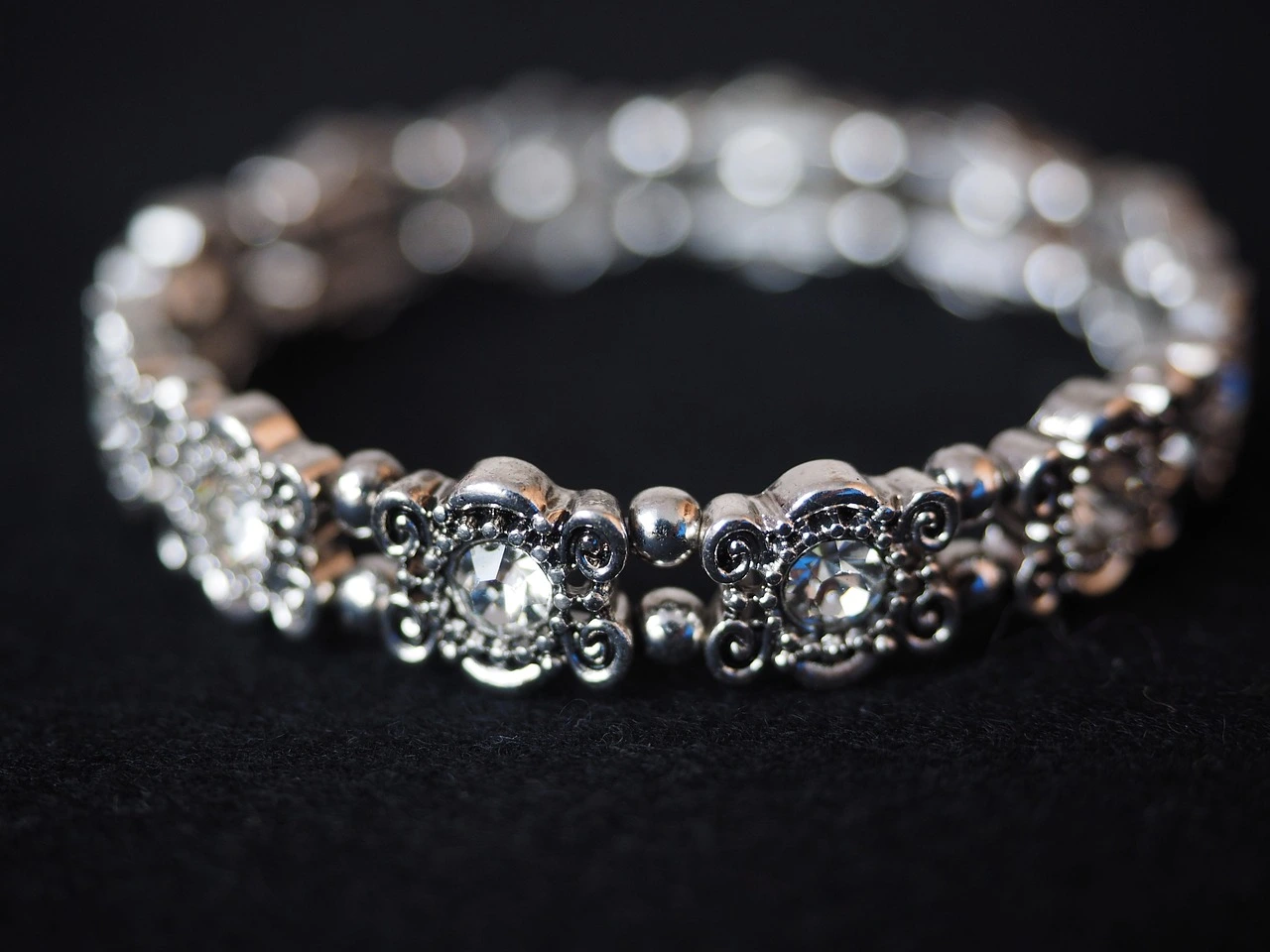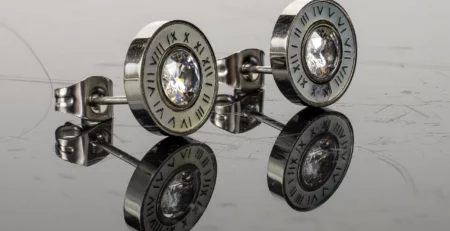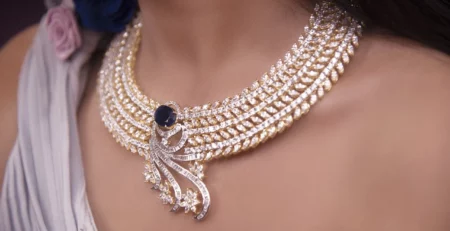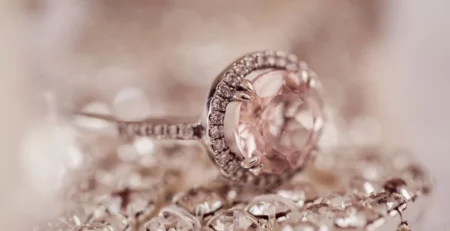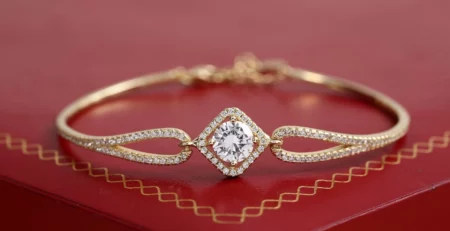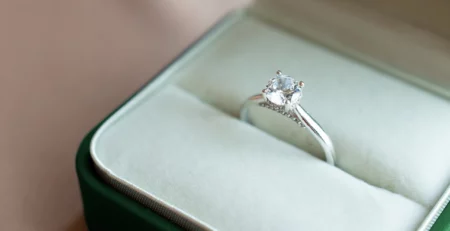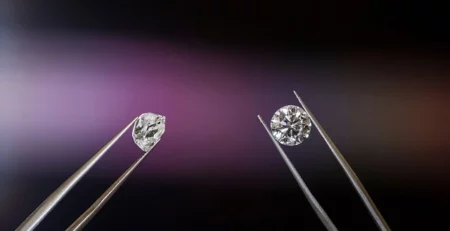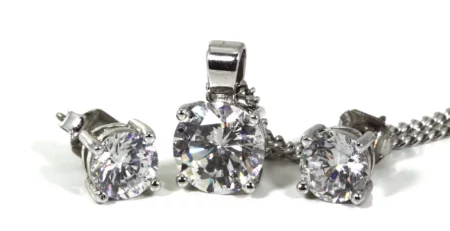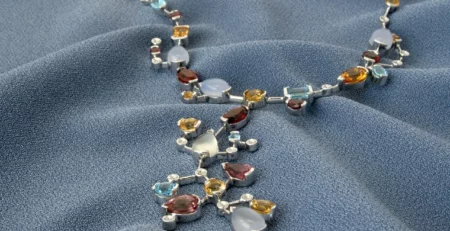Radiant Elegance: A Guide To Choosing And Styling Diamond Bangles
Diamonds have always held a special place in the world of fashion and jewelry. They are the epitome of elegance, luxury, and timeless beauty. When it comes to adorning oneself with these precious gemstones, diamond bangles stand out as a dazzling choice. Whether you’re preparing for a special occasion or simply want to elevate your everyday style, diamond bangles have the power to transform your look with their radiant elegance.
In this guide, explore the world of diamond bangles, from choosing the right one to styling it for various occasions. Whether you’re a diamond jewelry enthusiast or a newcomer to the world of fine jewelry, you’ll find valuable insights to help you make the most of these exquisite accessories.
Choosing the Perfect Diamond Bangles
- Understanding Diamond Quality: Before diving into the world of diamond bangles, it’s essential to grasp the basics of diamond quality. Diamonds are graded based on the four Cs: cut, color, clarity, and carat weight. The higher the grade in each category, the more valuable and brilliant the diamond.When shopping for diamond bangles, pay attention to these factors to ensure you’re getting the best quality within your budget.
- Setting Styles: Diamond bangles come in various setting styles, each with its unique appeal. Prong settings showcase the diamonds prominently, while channel settings offer a sleek, continuous band of diamonds. Bezel settings encircle each diamond with a protective metal rim, adding a touch of modernity. Choose a setting style that resonates with your personal style and preferences.
- Metal Choice: The choice of metal for your diamond bangle greatly influences its overall look. Common options include white gold, yellow gold, rose gold, and platinum. Consider your skin tone and style when selecting the metal. White gold complements cool skin tones, while yellow and rose gold look stunning on warmer skin tones. Platinum offers durability and a contemporary aesthetic.
- Design and Versatility: Diamond bangles come in various designs, from simple and elegant to intricate and ornate. Consider how versatile you want your bangle to be. A classic, understated design can be worn daily, while a more elaborate piece may be reserved for special occasions.
- Sizing and Comfort: Ensure your diamond bangle fits comfortably on your wrist. Sizing is crucial to prevent it from sliding around or feeling too tight. Some bangles feature adjustable clasps, making it easier to find the perfect fit.
Also Read – Highest Value Gemstones – Expensive Stones in The Indian Gemstone Market
Styling Your Diamond Bangles
- Everyday Elegance: Diamond bangles can elevate your everyday style effortlessly. Pair a simple, thin bangle with your office attire for a touch of sophistication. Alternatively, stack multiple bangles of varying thicknesses for a chic, layered look that adds a hint of glamour to your daily routine.
- Special Occasions: When attending formal events or celebrations, a statement diamond bangle can be your showstopper. Opt for a wider bangle with intricate diamond detailing to make a lasting impression. It’s essential to balance your jewelry; if you choose a bold bangle, keep other accessories understated.
- Bridal Bling: Diamond bangles are a popular choice for brides seeking to enhance their bridal look. Whether you’re going for a traditional or modern wedding, diamond bangles complement various bridal styles. Consider a set of matching bangles for a coordinated bridal ensemble or mix and match different designs for a unique, personalized touch.
- Casual Chic: Don’t hesitate to incorporate diamond bangles into your casual attire. A single diamond bangle can effortlessly elevate a jeans-and-T-shirt ensemble. It adds a touch of refinement without appearing overly formal.
- Layering and Stacking: Experiment with layering and stacking to create your signature style. Mix and match diamond bangles of different widths, metals, and designs to achieve a unique, eclectic look. This approach allows you to express your creativity and adapt your style to various occasions.
- Minimalist Beauty: Less is often more when it comes to diamond bangles. A single, delicate bangle adorned with a few sparkling diamonds can exude minimalist elegance. This style is perfect for those who prefer subtle sophistication.
Tips for Caring for Your Diamond Bangles
To maintain the brilliance and longevity of your diamond bangles, follow these care tips:
- Regular Cleaning: Clean your diamond bangles regularly to remove dirt, oil, and residue. Use a soft brush, mild detergent, and warm water to gently scrub the diamonds and metal. Rinse and dry thoroughly with a soft, lint-free cloth.
- Safe Storage: Store your diamond bangles separately from other jewelry to prevent scratching. Use a soft pouch or jewelry box with compartments to keep them secure.
- Professional Maintenance: Have your diamond bangles inspected by a professional jeweler annually. They can check for loose stones, worn settings, and other issues that may need repair.
- Avoid Harsh Chemicals: Remove your bangles when using cleaning agents, harsh chemicals, or engaging in activities that may expose them to potential damage.
- Protection: When not wearing your diamond bangles, store them in a safe and dry place away from direct sunlight, extreme temperatures, and humidity.
Also Read – The Healing Powers of Precious Stones and Gemstones
Interesting Facts and Figures
- Historical Significance: Diamonds have been admired for centuries. The word “diamond” itself comes from the Greek word “adamas,” which means invincible or unconquerable, reflecting the belief in the diamond’s durability and strength.
- The Cullinan Diamond: The largest diamond ever discovered is the Cullinan Diamond, found in South Africa in 1905. It weighed an astonishing 3,106 carats (1.37 pounds) before being cut into multiple diamonds, some of which now adorn royal jewelry collections.
- Diamonds’ Rarity: Diamonds are among the rarest gemstones on Earth. It’s estimated that for every one million carats of diamonds mined, only one carat is of gem quality.
- The Koh-i-Noor Diamond: The Koh-i-Noor diamond, once the largest known diamond in the world, has a tumultuous history. It has been owned by various rulers over the centuries and is now a part of the British Crown Jewels.
- The Hope Diamond: The Hope Diamond is one of the world’s most famous diamonds, known for its deep blue color and rumored curse. It is currently housed in the Smithsonian National Museum of Natural History in Washington, D.C.
Key Takeaways:
- Challenging Distinction: Differentiating between natural and lab-grown diamonds can be difficult due to their similar physical and chemical properties.
- Transparency is Crucial: To ensure transparency in diamond purchases, it’s important to rely on reliable sources and certificates.
- Diamond Grading Certificate: Look for a diamond grading certificate issued by a reputable gemological laboratory, like the Gemological Institute of America (GIA).
- Informed Decision: The certificate specifies whether the diamond is natural or lab-grown, enabling buyers to make an informed purchasing decision.
- Trustworthy Source: Trust certificates from established institutions to guarantee the authenticity of the diamond you are buying.
FAQs
Are diamond bangles suitable for everyday wear, or are they more for special occasions?
Diamond bangles can be versatile pieces of jewelry that are suitable for both everyday wear and special occasions. It often depends on the design and style of the bangle. Simple and understated diamond bangles are excellent choices for daily wear, adding a touch of elegance to your casual outfits.
What should I consider when choosing the right size for a diamond bangle?
Choosing the right size for a diamond bangle is essential for comfort and aesthetics. To determine the correct size, measure the circumference of your wrist where you plan to wear the bangle. Keep in mind that diamond bangles are usually rigid and do not have clasps.
How do I differentiate between natural and lab-grown diamonds in diamond bangles?
Distinguishing between natural and lab-grown diamonds can be challenging, as they share similar physical and chemical properties. To ensure transparency and make an informed purchase, consider the diamond grading certificate from a reputable gemological laboratory, such as the Gemological Institute of America (GIA). The certificate will specify whether the diamond is natural or lab-grown.

